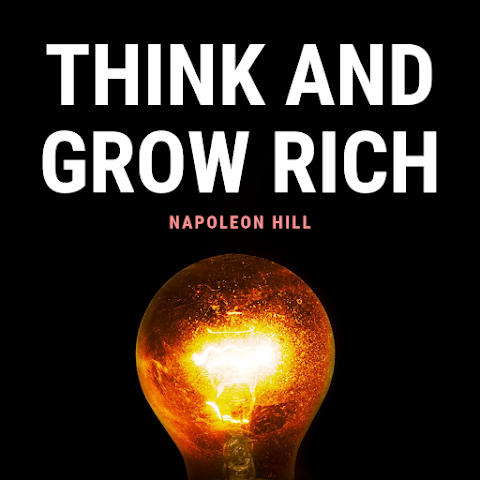Introduction: The Psychological Journey of Mercedes
Mercedes emerges as one of literature's most psychologically complex and emotionally resonant figures, whose transformation from innocent youth to profound wisdom encapsulates the human capacity for resilience, adaptation, and moral growth. This comprehensive analysis delves into the psychological depths of her character, examining how her experiences shape her consciousness, her choices reflect deep internal struggles, and her evolution illuminates universal themes of love, loyalty, and redemption in The Count of Monte Cristo.
Through Mercedes' character, Dumas crafts a masterful exploration of psychological transformation under extreme circumstances. Her journey from the simplicity of young love to the complexity of mature wisdom demonstrates how external events can fundamentally reshape one's worldview, emotional landscape, and moral understanding. This analysis examines the layers of her psychological development, from the initial trauma of losing Edmond to her final achievement of hard-won peace and self-awareness.
Experience Mercedes' Story Through Audio
Immerse yourself in Mercedes' emotional journey through our professionally narrated audiobook. Listen as her character comes to life, from her passionate early scenes with Edmond to her heart-wrenching revelations as the Countess de Morcerf.
Listen on SpotifyEarly Life and Psychological Formation
Cultural Identity and Early Character Development
Mercedes' early life in the Catalan village near Marseilles forms the psychological foundation that shapes her entire character arc. This period represents more than just her physical setting; it establishes the core psychological frameworks through which she will later interpret and respond to life's challenges. Her initial portrayal reveals a complex interplay of cultural identity, personal attributes, and emerging psychological characteristics:
- Cultural Identity
- Proud Catalan heritage
- Traditional values and upbringing
- Connection to her community
- Cultural influences on her character
- Personal Qualities
- Natural grace and beauty
- Strong sense of loyalty
- Emotional depth
- Youthful idealism
The First Love: Psychological Foundations and Emotional Anchoring
The Psychology of Pure Love and Identity Formation
The relationship between Mercedes and Edmond Dantès represents more than just a romantic attachment; it forms the psychological cornerstone of Mercedes' identity and emotional development. This foundational relationship establishes patterns of emotional connection, trust, and self-definition that will influence her throughout her life:
Psychological Dimensions of First Love
- Identity Formation
- Integration of love into self-concept
- Development of future aspirations
- Formation of relationship patterns
- Establishment of emotional security
- Emotional Development
- Creation of trust frameworks
- Development of attachment patterns
- Formation of emotional resilience
- Building of interpersonal bonds
- Nature of Their Love
- Deep emotional connection
- Shared dreams and aspirations
- Mutual trust and devotion
- Social acceptance and support
- Future Plans
- Marriage preparations
- Shared vision of life together
- Community expectations
- Professional aspirations
The Crisis: Psychological Impact of Trauma and Loss
The Shattering of Psychological Foundations
The arrest and imprisonment of Edmond represents a profound psychological trauma that fundamentally reshapes Mercedes' worldview and emotional landscape. This crisis becomes a pivotal moment in her psychological development, challenging her basic assumptions about justice, love, and the nature of human society:
- Immediate Psychological Response
- Acute trauma response and emotional shock
- Disruption of core belief systems
- Challenge to fundamental trust in justice
- Initial mechanisms of psychological defense
- Complex Grief Process
- Ambiguous loss without closure
- Oscillation between hope and despair
- Struggle with uncertainty and waiting
- Development of coping mechanisms
- Social-Emotional Impact
- Transformation of social identity
- Renegotiation of community relationships
- Experience of social stigma
- Navigation of changed social status
The Complex Decision: Psychological Dimensions of Survival
Marriage to Fernand: A Study in Psychological Adaptation
Mercedes' decision to marry Fernand Mondego represents a complex psychological process involving survival mechanisms, emotional compromise, and the intricate interplay between personal agency and societal pressure. This choice becomes a defining moment in her character development, illustrating the psychological complexity of adaptation in the face of trauma:
- Psychological Motivations
- Survival instinct activation
- Response to prolonged uncertainty
- Need for psychological stability
- Search for new identity anchors
- Emotional Processing
- Guilt and self-justification mechanisms
- Complex grief resolution attempts
- Emotional numbing and adaptation
- Development of psychological defenses
- Identity Reconstruction
- Integration of new social role
- Reconciliation with past self
- Development of survival narrative
- Adaptation of moral framework
Life as Countess de Morcerf: The Psychology of Social Transformation
Identity Integration and Psychological Adaptation
Mercedes' elevation to Countess de Morcerf represents a complex psychological journey of identity transformation and social adaptation. This period marks a sophisticated interplay between external status and internal psychological development, revealing the intricate ways in which social position influences personal identity and moral consciousness:
- Psychological Integration of Status
- Adaptation to new social identity
- Management of imposter syndrome
- Development of authentic self within constraints
- Navigation of class-based psychological barriers
- Emotional Complexity
- Reconciliation of past and present selves
- Management of suppressed guilt
- Development of emotional resilience
- Integration of conflicting loyalties
- Social-Psychological Adaptation
- Mastery of aristocratic social codes
- Development of situational awareness
- Balance of authenticity and performance
- Navigation of power dynamics
- Moral-Psychological Development
- Evolution of ethical framework
- Integration of competing values
- Development of moral resilience
- Maintenance of personal integrity
The Recognition: Psychological Trauma and Emotional Resurrection
The Moment of Truth: A Psychological Analysis
Mercedes' recognition of the Count of Monte Cristo as Edmond Dantès represents a profound psychological watershed moment, catalyzing a complex process of emotional awakening, moral reckoning, and identity reconstruction. This pivotal scene reveals the intricate layers of her psychological development and emotional maturity:
Psychological Dimensions of Recognition
- Cognitive Processing
- Integration of past and present realities
- Reconstruction of suppressed memories
- Processing of emotional truth
- Recognition of psychological patterns
- Emotional Response
- Reactivation of dormant feelings
- Management of acute emotional crisis
- Navigation of conflicting loyalties
- Processing of complex guilt
- Moral Awakening
- Confrontation with past choices
- Reassessment of life decisions
- Development of moral clarity
- Integration of ethical understanding
- Behavioral Response
- Strategic protection of Albert
- Diplomatic navigation of crisis
- Balance of competing obligations
- Implementation of moral courage
This moment of recognition becomes a crucible for Mercedes' character, forcing her to confront and integrate the various aspects of her identity - the young lover she was, the aristocratic mother she became, and the wise woman she must now be. Her handling of this crisis demonstrates the culmination of her psychological development and emotional wisdom.
Maternal Identity and Psychological Transformation
The Complex Psychology of Maternal Love
Mercedes' role as Albert's mother represents one of the most psychologically complex aspects of her character, revealing layers of emotional depth, moral responsibility, and personal sacrifice. Her maternal identity becomes both a source of strength and a catalyst for profound psychological development:
Dimensions of Maternal Psychology
- Emotional Investment
- Development of unconditional love
- Integration of protective instincts
- Management of guilt and responsibility
- Balance of nurture and truth
- Identity Formation
- Evolution of maternal self-concept
- Reconciliation of past and present roles
- Development of moral authority
- Integration of personal and maternal identity
- Psychological Challenges
- Navigation of truth versus protection
- Management of generational trauma
- Balance of love and moral obligation
- Resolution of identity conflicts
- Growth and Adaptation
- Development of emotional wisdom
- Enhancement of moral courage
- Strengthening of protective capacity
- Evolution of parental philosophy
Through her maternal role, Mercedes demonstrates remarkable psychological resilience and emotional intelligence. Her relationship with Albert becomes a crucible for personal growth, forcing her to confront complex moral dilemmas and navigate the delicate balance between protecting her child and maintaining moral integrity.
Moral Evolution and Wisdom
Character Growth
Throughout the novel, Mercedes undergoes significant moral and personal growth:
- Moral Development
- Ethical understanding
- Complex morality
- Personal responsibility
- Wisdom acquisition
- Personal Growth
- Self-awareness
- Emotional maturity
- Moral courage
- Inner strength
Final Choices and Redemption
Personal Salvation
Mercedes' final decisions in the novel demonstrate her ultimate character development:
- Final Actions
- Renunciation of wealth
- Return to simplicity
- Moral rectitude
- Personal peace
- Character Resolution
- Inner reconciliation
- Spiritual growth
- Moral victory
- Personal redemption
Literary Significance and Narrative Impact
Mercedes as a Pivotal Literary Figure
Mercedes' character transcends typical nineteenth-century female characterization, serving as a cornerstone for multiple narrative and thematic developments in the novel. Her significance extends beyond mere plot functionality to embody complex philosophical and social commentary:
Thematic Embodiment
- Love and Loyalty Exploration
- Examination of unconditional love's limits
- Challenge to romantic idealism
- Evolution of loyalty under duress
- Transformation of affection through time
- Social Commentary Vehicle
- Critique of class mobility consequences
- Examination of societal expectations
- Commentary on marriage institutions
- Analysis of gender roles in society
- Moral Complexity Representative
- Navigation of ethical gray areas
- Demonstration of situational ethics
- Exploration of moral responsibility
- Illustration of redemptive possibilities
Narrative Functions
- Plot Architecture
- Catalyst for major plot developments
- Connection between narrative threads
- Generator of dramatic tension
- Bridge between past and present
- Character Development Vehicle
- Mirror for Dantès' transformation
- Influence on Albert's character arc
- Catalyst for Fernand's downfall
- Exemplar of psychological growth
- Thematic Resonance
- Embodiment of redemption themes
- Representation of transformation
- Illustration of consequence
- Symbol of reconciliation
Symbolic Significance and Psychological Archetype
Embodiment of Universal Human Experience
Mercedes transcends her role as a character to become a powerful symbol of human resilience and psychological transformation. Her journey represents fundamental aspects of the human experience, particularly the complex interplay between personal agency and societal constraints:
Archetypal Dimensions
- The Transformed Innocent
- Evolution from naïveté to wisdom
- Loss of idealistic worldview
- Development of complex moral understanding
- Integration of life's harsh realities
- The Survivor
- Adaptation to adverse circumstances
- Psychological resilience
- Emotional fortitude
- Strategic compromise
- The Moral Navigator
- Balance of competing loyalties
- Integration of past and present
- Ethical decision-making
- Personal integrity maintenance
Societal and Cultural Symbolism
- Gender and Power Dynamics
- Female agency in patriarchal society
- Navigation of social constraints
- Transformation of traditional roles
- Resistance through adaptation
- Class and Identity
- Social mobility implications
- Identity reconstruction across classes
- Authenticity versus adaptation
- Cultural transformation
Contemporary Psychological Relevance
Modern Psychological Interpretation
Mercedes' character offers profound insights into contemporary psychological understanding, particularly in areas of trauma, resilience, and identity formation:
Psychological Frameworks
- Trauma and Recovery
- Complex trauma response patterns
- Adaptive survival mechanisms
- Integration of traumatic experience
- Resilience development
- Identity Theory
- Multiple self-integration
- Role adaptation and authenticity
- Social identity reconstruction
- Narrative identity development
- Moral Psychology
- Ethical decision-making under pressure
- Moral identity development
- Value system integration
- Cognitive dissonance resolution
Feminist and Social Justice Perspectives
- Contemporary Feminist Analysis
- Agency within constraints
- Intersectionality of oppression
- Resistance through survival
- Emotional labor analysis
- Social Justice Implications
- Power structure navigation
- Systemic inequality impact
- Personal versus collective responsibility
- Transformative justice concepts
Listen to Key Scenes
Experience Mercedes' Journey Through Audio
Enhance your understanding of Mercedes' character through our curated collection of key scenes:
Conclusion: The Eternal Mentor and Psychological Architect
Mercedes emerges as one of literature's most profound and multifaceted mentor figures, embodying not just the transformative power of education but the intricate process of psychological reconstruction and spiritual renewal. Her influence on Dantès represents a masterful example of how comprehensive mentorship can reshape an individual's entire psychological framework, intellectual capabilities, and moral understanding.
The relationship between Faria and Dantès transcends traditional educational boundaries, becoming a template for profound personal transformation. Their interaction demonstrates how true mentorship operates on multiple levels simultaneously:
- Psychological Transformation
- Healing of trauma through understanding
- Development of emotional resilience
- Integration of past and future selves
- Building of psychological strength
- Intellectual Evolution
- Expansion of cognitive capabilities
- Development of strategic thinking
- Enhancement of analytical skills
- Cultivation of wisdom
- Moral Development
- Formation of ethical framework
- Understanding of justice and mercy
- Development of moral complexity
- Integration of values and actions
Through this comprehensive development, their story within the larger narrative of The Count of Monte Cristo stands as a testament to the extraordinary potential for human growth and transformation. It demonstrates how the right mentor can guide an individual through the darkest circumstances toward not just survival, but profound personal evolution and enlightenment.
Listen to Key Scenes
Experience Mercedes' Journey Through Audio
Enhance your understanding of Mercedes' character through our curated collection of key scenes:



